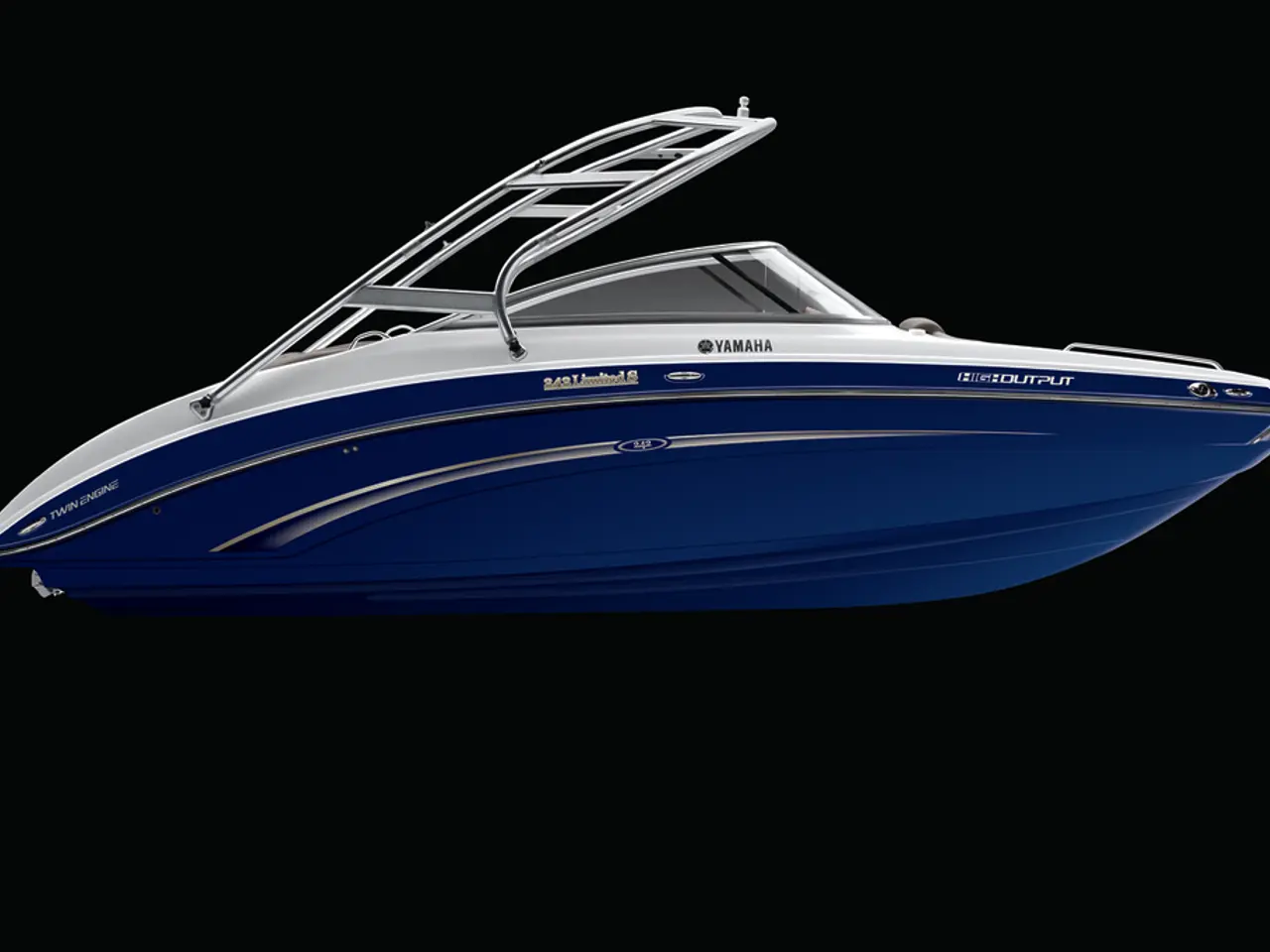Methanol cargo vessel makes routine trips past Norwegian waters
The "Laura Maersk" is set to make its maiden voyage on November 15, marking a significant milestone in the maritime industry's quest for sustainable shipping. This groundbreaking containership, designed in response to the EU's Green Deal, will depart from the port of Hamburg and head towards Rotterdam, carrying approximately 16,000 twenty-foot equivalent units (TEUs).
Captained by Captain Jens Andersen, the "Laura Maersk" will be accompanied by a support vessel, the "Fairplay Support 12". During its transit of the Kiel Canal, the vessel will be closely monitored by the German Maritime and Hydrographic Agency (BSH). The containership is scheduled to transit the Kiel Canal twice a week until the end of the year.
One of the most striking features of the "Laura Maersk" is its use of methanol as fuel, making it the world's first containership to do so. This decision is driven by the environmental benefits methanol offers, including reduced emissions and improved safety for the environment.
Methanol is safer for the environment than traditional fuels, preventing dirt and grime buildup within the engine and having a less harmful impact on air quality. In terms of emissions, methanol can significantly reduce greenhouse gas emissions compared to traditional bunker fuels, contributing to cleaner shipping operations.
The "Laura Maersk" will be equipped with a methanol-powered engine, which is expected to reduce its carbon emissions by up to 25%. This is particularly significant in the maritime sector, where emissions contribute substantially to global pollution.
However, the adoption of methanol is not without challenges. The availability of green methanol is limited, posing a challenge for widespread adoption. Additionally, methanol has a lower energy density than traditional fuels, requiring larger storage spaces or more frequent refueling.
Despite these challenges, the "Laura Maersk" serves as a beacon of hope for a more sustainable future in the maritime industry. With a crew of 23 and an average speed of 23 knots, the vessel is expected to complete its round trip in five days. The "Laura Maersk" was named on December 14, and its journey is a testament to the strides being made towards a greener, cleaner future for shipping.
[1] Environmental Protection Agency. (2021). Methanol. Retrieved from https://www.epa.gov/methanol [2] International Council on Clean Transportation. (2020). Methanol in Shipping. Retrieved from https://theicct.org/publications/methanol-shipping [3] International Maritime Organization. (2020). Methanol as Marine Fuel. Retrieved from https://www.imo.org/en/ourwork/environment/airpollution/methanol [4] United Nations Framework Convention on Climate Change. (2021). Greenhouse Gas Emissions from Ships. Retrieved from https://unfccc.int/process-and-meetings/the-convention/technical-meetings/maritime-transport/greenhouse-gas-emissions-from-ships
- Utilizing methanol as fuel, the "Laura Maersk" embodies an innovative approach in environmental-science, demonstrating a commitment to climate-change mitigation through reduced greenhouse gas emissions in the maritime industry.
- In the pursuit of a greener maritime future, the adoption of technology such as methanol-powered engines, as demonstrated by the "Laura Maersk", aligns with the objectives of the EU's Green Deal and the international efforts to combat climate-change.




